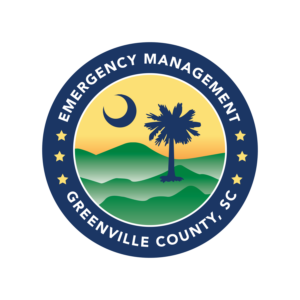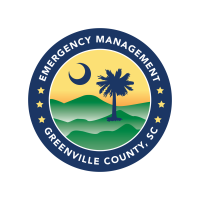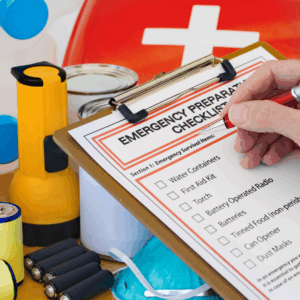Water
Storing water is one of the most important things you can do for a disaster.
You should have at least 1 gallon per person (AND PETS) per day for at least 5 days.
- Store water in plastic containers – Plastic soft drink bottles are good. Don’t use milk cartons or glass bottles.
- You should have at least one gallon of water per person in the home (and pets) for at least 5 days.
Food
You will need a three-day supply of non-perishable food. Non-perishable means food that can stay good for a long time without needing to be in the refrigerator. It is also good if the food doesn’t need to be cooked.
Be sure to have a manual can opener in your kit!
Here are some suggestions:
- Ready-to-eat canned meats
- Peanut butter and crackers
- Fruits and vegetables
- Breakfast bars
- Instant coffee and tea
- Cookies, and trail mix
- Canned juice, milk
- Soup
- Special food for babies or older people
- Baby food
- Pet food
The food should be kept dry and cool. Items such as cookies and crackers should be put in plastic bags. If you add canned goods, don’t forget a non-powered can opener!
First Aid
Listed below are some of the items that should be included in your First Aid kit:
- Band Aids
- Sterile gauze pads
- Hypoallergenic adhesive tape
- Scissors
- Antacid
- Aspirin or other pain reliever and any other medication such as allergy medicine
- Petroleum jelly
- Thermometer
- Anti-diarrhea medicine
- Soap
- Sunscreen
- Moistened towellettes
Tools & Supplies
Listed below are some of the tools and supplies that you may want to include in your disaster supply kit. Keep in mind that you may have to leave your home and you would need a convenient method to take these items with you.
- Battery-operated radio
- Extra batteries
- Flashlight
- Toilet paper
- Pliers
- Compass
- Tape
- Non-electric can opener
- Utility knife (like a Swiss Army knife)
- Plates and cups made of paper or plastic
- Matches in a waterproof container
- Fire extinguisher (ABC type)
- Plastic garbage bags
- Shut-off wrench to turn off the gas and water to your house – remember never turn utilities back on by yourself.
Some other important items
- Cash. ATM’s and credit card readers may not work after a disaster. Keep small bills (5,10,20’s) on hand
- Photos of your home and property taken just before impact. Be sure photos are date stamped
- List of perscription medication for everyone (including pets)
- Copy of legal documents (e.g., will, marriage license, birth certificates)
- Copy of a utility bill for proof of residence
Clothing & Bedding
Everyone in your house should have a complete change of clothes and a pair of sturdy shoes or boots stored in the disaster kit. You should also have rain gear, thermal underwear and blankets or sleeping bags.




